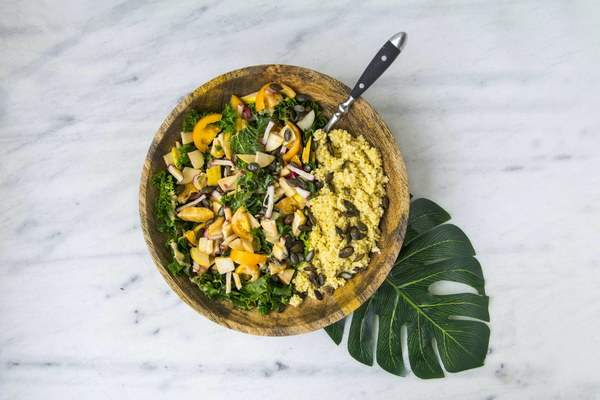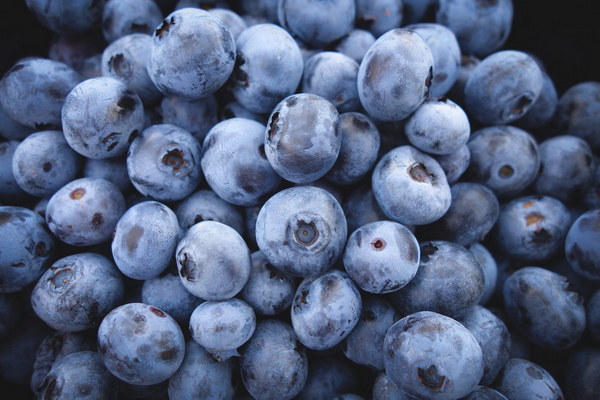Nourishing Eats Discover the Best Foods for Optimal Health
Nourishing Eats: Discover the Best Foods for Optimal Health
In the quest for a healthier lifestyle, one of the most fundamental steps we can take is to pay attention to what we eat. The right foods can not only satisfy our taste buds but also provide the necessary nutrients to maintain and enhance our overall well-being. This article delves into a selection of foods that are renowned for their health-boosting properties, helping you make informed choices for a nourishing diet.
1. Leafy Greens: The Powerhouse of Nutrients
Leafy greens such as spinach, kale, and Swiss chard are packed with essential nutrients. These greens are rich in vitamins A, C, K, and E, as well as iron, calcium, and potassium. They are also an excellent source of antioxidants, which can help protect your cells from damage. Incorporate these greens into your salads, smoothies, or as a side dish to enjoy a burst of vitality.

2. Berries: The Tiny Superfoods
Berries are small but mighty when it comes to health benefits. Blueberries, strawberries, raspberries, and blackberries are all high in antioxidants, which can improve brain health, reduce the risk of heart disease, and even fight inflammation. They are also a good source of fiber and can help with digestion. Enjoy them fresh, frozen, or as part of a healthy dessert.
3. Fish: The Omega-3 Rich Pick
Fish like salmon, mackerel, and sardines are well-known for their high omega-3 fatty acid content. These healthy fats are essential for heart health, brain function, and reducing inflammation. Aim to include fish in your diet at least twice a week, and opt for wild-caught varieties to minimize exposure to mercury and other contaminants.
4. Nuts and Seeds: The Healthy Snack Option
Nuts and seeds are not only delicious but also packed with nutrients. Almonds, walnuts, chia seeds, and flaxseeds are great sources of healthy fats, protein, fiber, and vitamins. They can be a satisfying snack or added to salads, yogurt, or oatmeal for an extra nutritional kick.
5. Whole Grains: The Heart-Healthy Carbs
Whole grains such as quinoa, brown rice, and whole-wheat bread are rich in fiber, vitamins, and minerals. They can help regulate blood sugar levels, improve digestion, and reduce the risk of heart disease. Replace refined grains with whole grains in your meals to reap these benefits.
6. Legumes: The Plant-Based Protein Powerhouse
Legumes such as lentils, chickpeas, and black beans are an excellent source of plant-based protein, fiber, and essential nutrients. They can help lower cholesterol, improve gut health, and support weight management. Include them in soups, salads, or as a base for hearty stews.
7. Avocados: The Fatty Fruit That's Good for You
Avocados are a unique food that provides healthy fats, fiber, and a variety of vitamins and minerals. They can help increase the absorption of fat-soluble vitamins, improve heart health, and may even aid in weight loss. Add slices of avocado to your salad, spread it on whole-grain toast, or use it in place of mayonnaise on sandwiches.
8. Fruits: Nature's Sweet Treats
Fruits like apples, oranges, and bananas are not only delicious but also provide a wealth of health benefits. They are high in vitamins, minerals, and antioxidants, which can boost your immune system and reduce the risk of chronic diseases. Aim for a variety of fruits throughout the week to ensure you're getting a wide range of nutrients.
9. Fermented Foods: The Gut-Boosting Delicacies
Fermented foods such as yogurt, kefir, sauerkraut, and kimchi are rich in probiotics, which can help maintain a healthy gut microbiome. A healthy gut is essential for digestion, immune function, and overall health. Add these foods to your diet in moderation to reap their benefits.
Conclusion
Incorporating a variety of nutrient-dense foods into your diet can have a profound impact on your health and well-being. By focusing on foods like leafy greens, berries, fish, nuts, seeds, whole grains, legumes, avocados, fruits, and fermented foods, you can create a nourishing eating plan that supports your body's needs. Remember, balance and variety are key to a healthy diet, so don't be afraid to experiment with different foods and flavors. Happy eating!









